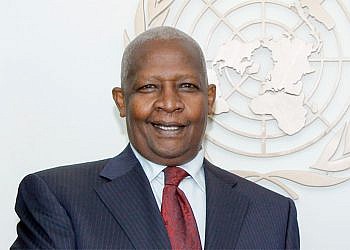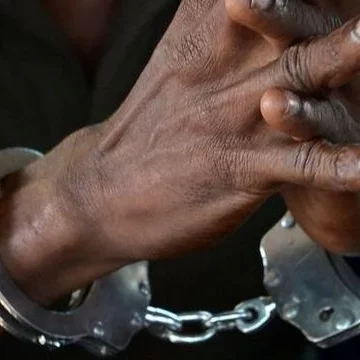A new study has indicated that the police’s welfare is accurately lacking to an extent that officers are living like dogs.
Titled ‘Squeezing water out of a stone’ the study conducted between February and July 2022 in 75 districts shows that the very dire that in most parts of the country.
“Of the police personnel interviewed 29% lived in decent housing, 36% lived in moderately decent housing, 24% lived in dilapidated structures 3.6% lived in makeshift structures while 7.7% did not specify the state of their housing,” the report says.
“Even the 32% that described their housing as moderately decent were just comparing with their colleagues who lived in makeshift structures, otherwise the institutional accommodation was largely dilapidated, with shared rooms partitioned by either curtains or makeshift boards; condemned structures unfit for human habitation, uniports which are very uncomfortable.”
The study shows that some police personnel opted to live in their homes or voluntarily rent outside institutional accommodation in order to find family time and try to live a decent life, while others especially juniors were displaced from institutional accommodation by senior personnel and any complaint regarding this would have repercussions.
“Yet entitled personnel who were not residing in institutional housing were not getting any special allowance and individually footed the bill. The personnel who were officially living outside the barracks raised concerns about their personal security at their places of residence, high rental charges and the challenge of finding decent accommodation that does not put the police force in disrepute.”
“The distance between residences and workplaces impacted on availability of personnel at the workplace for efficient service delivery. “
According to the study, a number of police officers live up to more than 8kms away from their duty stations yet the force does provide them with transport to and from work.
The few that had official transport reported that they were struggling with the challenge of inadequate facilitation for fuel.
The study also shows that also the office structures, mostly upcountry are in a story state.
For example, majority of the respondents (47%) described the office structures as moderately decent, 21% as decent, 24% as dilapidated while 4% said they were makeshift structures and only 23% of the respondents indicated that their office space was sufficient.
“The 62% who reported insufficient space revealed that, most of the police stations or posts lacked space for particular offices such as CID, Field Force Unit, Child and Family Protection Unit, armoury, exhibit store, radio room, suspects’ cells, health unit and CCTV room, among others and as such they opted to improvise or share.Some police units had improvised with arms chests in lieu of the armoury and grass-thatched huts in lieu of permanent structures.”
The study also indicates that there are inadequate cells , more so to cater for the different sex and juvenile offenders.
“Consequently, Uganda Police Force personnel improvised by either holding suspects at the counter; or guarding them under trees during the day and at night locking them up in an office or the police personnel’s home; issuing police bond even in circumstances where it would ideally not have applied; incarcerating children with adults or releasing them even where this would result in more challenges; transferring suspects to other stations resulting in their families and relatives having difficulty to access them, which violated their rights.”
Office supplies
The study also indicates that only 49% of the respondents had full staff uniform, 45% stationery and 33% fuel, oil and lubricants while only 16% were getting food ration and 6% meals on duty.
“Those who said they had other supplies such as police forms (PF3, PF18, statement forms) reflector jackets, SD (station Diaries) books, warm suits, plain clothes allowance, soap and sanitary towels for female suspects, blankets and mattresses for SGBV victims and weather jackets were only 16%. Majority (80%) of these said the supplies were insufficient, 11% said they were partly sufficient and only 6% said they were sufficient,” the study says.
“ Consequently, police personnel improvised using their own money from their meagre pay to buy some supplies while others depended on the support and good will of well-wishers such as community members, politicians, religious organisations, schools, district, sub-county, local government offices, NGOs and local business owners.”
The report says in some stations and posts police personnel request clients or suspects or their relatives to photocopy PF3 or PF18 before they are rendered services.
Commenting about the report, the Inspector General of Police, John Martins Okoth Ochola said despite the challenges, they will never stop rendering services to Ugandans.
“The police force has unwaveringly remained committed to upholding human rights in all aspects of our operations, not only as a legal requirement but also as our fundamental responsibility,” Ochola said.
“For this reason we have progressively built the strength and capacity of its personnel to effectively deliver the policing services to the nation in compliant with human rights standards. “










































